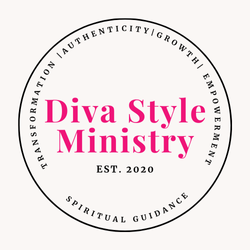In today’s fast-paced, dog-eat-dog world, everyone gets labeled, whether they like it or not.
In the past, introverts often received a bad rap when compared to their extroverted counterparts. The introvert was frequently overlooked and undervalued next to the outgoing, fun-loving extrovert.
It’s essential to recognize, though, that both personality types come with their own unique advantages and disadvantages. Being an introvert has many benefits that can empower you to thrive in your own way!
Advantages of Being an Introvert
Ability to Hyper-Focus
Introverts typically excel at hyper-focusing on specific subjects or tasks for extended periods, often longer than would be deemed natural or even possible for an extrovert. This ability to concentrate deeply can make research or detailed projects a breeze for them. Whether delving into a complex book or tackling an intricate work assignment, introverts have the knack for immersing themselves fully in what interests them.
Independence
Introverts often perform their best when working independently and require very little supervision. This autonomy allows them to set their own pace and jump right into their tasks without falling prey to constant distractions. They find comfort in solitude, which often fuels their creativity and productivity, leading to high-quality work that reflects their capabilities.
Introverts are Great Organizers
With their keen attention to detail, introverts are often exceptional organizers. They leave no stone unturned, ensuring that everything is meticulously planned and executed. Whether it’s organizing an event, managing a project, or maintaining a tidy workspace, introverts have a natural talent for creating order and structure.
Cultivating Meaningful Relationships
For introverts, building relationships takes time, but the connections they cultivate are often deeper and more meaningful. They prioritize quality over quantity, focusing on nurturing a few close friendships rather than spreading themselves thin with numerous acquaintances. This commitment to authenticity allows introverts to form bonds based on trust, understanding, and shared values.
The Gift of Listening
Quiet and deliberate in their actions, introverts are often great listeners. This trait enables them to provide support and understanding to friends and colleagues alike. Their careful choice of words and thoughtful communication style make them approachable and trustworthy, building an environment where others feel heard and valued.
Disadvantages of Being an Introvert
Challenging First Impression
Introverts can struggle to make a strong first impression. Their tendency to use fewer words and occasional social awkwardness can lead others to perceive them as socially inept or lacking in verbal skills. However, this isn’t due to a limited vocabulary; many introverts are well-read and articulate. Instead, it stems from their relative inexperience with social interactions and social cues, which can make initial encounters challenging.
Being Labeled “Weird” or “Awkward”
Due to their quieter demeanor, introverts might be labeled as “weird” or “awkward” by those who don’t understand them. While they may be a bit different from the extroverted norm, being unique is far from being “weird.” It’s crucial to challenge these stereotypes and embrace the individuality that introverts bring to the table.
Disregard for Social Customs
Because introverts often shy away from crowded spaces and social gatherings, they may be unfamiliar with the customs and rituals associated with a more extroverted lifestyle. This disconnect can lead to feelings of isolation or alienation when they do find themselves in social situations. Introverts might wonder, “Why bother with the crowd and their rituals if I’m not truly part of it?”
Frequently Overlooked
In social settings, introverts can feel left out or forgotten when invitations are extended. In professional environments, more vocal colleauges might overshadow their contributions. While introverts diligently work behind the scenes, their efforts can often go unnoticed, making it difficult for them to showcase their talents and achievements.
Next Steps: Building on Strengths and Working on Weaknesses
Regardless of whether you identify as an introvert or an extrovert, both personality types possess qualities that can be nurtured and developed. By focusing on building your strengths and addressing your weaknesses, you can create a more balanced and fulfilling version of yourself.
You don’t have to become loud or extroverted if that doesn’t feel right for you. Embrace your introverted nature and allow yourself the freedom to be quietly confident in who you are. Remember, it’s perfectly okay to thrive in your own way. So, if it makes you happier, be quiet and be proudly you!





